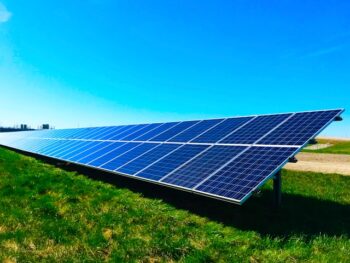In today’s world, where energy consumption is on the rise and concerns about sustainability are becoming more prominent, achieving household energy independence is an increasingly attractive goal. By generating your own energy and reducing reliance on external sources, you not only save on utility bills but also contribute to a greener planet. This article will explore essential tips for planning household energy independence, highlighting the key steps to take and the benefits of achieving energy autonomy. Additionally, we’ll draw some interesting parallels between energy independence and strategic thinking in other fields, like the world of online casinos, exemplified by platforms such as Znaki.fm and 20bet casino.
Understanding Energy Independence and Why It Matters
What is Household Energy Independence?
Household energy independence refers to the ability of a home to generate its own energy to meet all or most of its energy needs. This typically involves the use of renewable energy sources such as solar panels, wind turbines, or geothermal systems. By achieving energy independence, homeowners can reduce their dependence on the traditional energy grid, which often relies on fossil fuels.
Why Strive for Energy Independence?
There are several compelling reasons to aim for energy independence:
- Cost Savings: Over time, generating your own energy can lead to significant savings on utility bills. Although the initial investment in renewable energy systems can be substantial, the long-term financial benefits often outweigh the upfront costs.
- Environmental Impact: Reducing reliance on fossil fuels by generating renewable energy helps decrease greenhouse gas emissions, contributing to the fight against climate change.
- Energy Security: Energy independence provides protection against rising energy costs and potential disruptions in the energy supply. In the event of power outages or energy shortages, a self-sufficient home can continue to operate normally.
- Increased Property Value: Homes equipped with renewable energy systems often have higher property values and are more attractive to buyers who are looking for energy-efficient, sustainable living options.
Steps to Achieving Household Energy Independence
1. Conduct an Energy Audit
The first step towards achieving energy independence is understanding your current energy consumption. Conducting an energy audit helps identify where energy is being used, wasted, or lost. You can perform a basic audit yourself or hire a professional. During the audit, focus on:
- Identifying energy-hungry appliances: Certain appliances consume more energy than others. Identifying these can help you prioritize upgrades or replacements.
- Assessing insulation and weatherproofing: Heat loss or gain through poorly insulated walls, windows, or doors can significantly increase energy consumption.
- Checking lighting efficiency: Traditional incandescent bulbs consume more energy than LED or CFL alternatives. Upgrading lighting can result in immediate energy savings.
2. Invest in Renewable Energy Systems
Once you understand your energy consumption, the next step is to explore renewable energy options:
- Solar Panels: Solar power is one of the most popular renewable energy sources. Depending on your location and roof orientation, solar panels can generate enough electricity to power your entire home. Additionally, excess energy can be stored in batteries or sold back to the grid.
- Wind Turbines: If you live in an area with consistent wind, a small wind turbine could complement or replace solar energy. Wind energy systems are particularly effective in rural areas where wind speeds are higher.
- Geothermal Systems: Geothermal energy harnesses the stable temperatures beneath the Earth’s surface to heat and cool your home. While more expensive to install, geothermal systems are highly efficient and have low operating costs.
3. Optimize Energy Storage Solutions
Generating renewable energy is only part of the equation. To achieve true energy independence, you need a reliable way to store the energy you produce:
- Battery Storage: Modern battery systems, like those used in solar installations, can store excess energy generated during the day for use at night or during cloudy periods. Batteries have become more affordable and efficient in recent years, making them a key component of any energy independence plan.
- Grid-Tied vs. Off-Grid Systems: While some homeowners opt for complete independence from the grid, others choose a hybrid approach where they remain connected to the grid as a backup. This allows them to sell excess energy back to the utility company while drawing power from the grid when needed.
4. Implement Energy Efficiency Measures
To reduce the amount of energy you need to generate, focus on improving your home’s energy efficiency:
- Upgrade to Energy-Efficient Appliances: Replacing old, inefficient appliances with modern, energy-efficient models can significantly reduce energy consumption. Look for appliances with the ENERGY STAR label.
- Improve Insulation and Weatherproofing: Ensure that your home is well-insulated and sealed to prevent energy loss. This includes adding insulation to walls and attics, sealing gaps around windows and doors, and using weatherstripping.
- Smart Home Technology: Smart thermostats, lighting, and energy management systems can optimize energy use based on your habits and preferences. For example, a smart thermostat can learn your schedule and adjust heating and cooling to minimize energy use when you’re not home.
5. Explore Financial Incentives and Rebates
Many governments and utility companies offer incentives for investing in renewable energy and energy efficiency. These can include tax credits, rebates, and grants that help offset the initial cost of installation:
- Government Programs: Research federal, state, and local programs that provide financial assistance for renewable energy projects. These incentives can significantly reduce your upfront costs.
- Utility Company Rebates: Some utility companies offer rebates for installing energy-efficient appliances or renewable energy systems. Check with your utility provider to see what programs are available in your area.
Parallels Between Energy Independence and Online Casino Strategy

Interestingly, the strategic planning required for achieving household energy independence mirrors the careful planning and decision-making that’s vital in other fields, such as online gambling. Websites like Znaki.fm Hu provide detailed reviews of online casino brands, helping players make informed choices about where to play and how to manage their gaming habits. Just as in energy planning, where understanding consumption patterns and making strategic investments is key, success in online gaming also requires a deep understanding of the landscape, including the games, bonuses, and payment systems offered by platforms like 20bet casino.
Energy Management and Bankroll Management
In the same way that energy management is crucial for maintaining a self-sufficient home, bankroll management is essential for success in online gambling. Players who carefully manage their funds and take advantage of bonuses and promotions can maximize their chances of success, much like homeowners who optimize energy use and invest in renewable systems to achieve energy independence.
Long-Term Planning and Sustainable Gaming
Both energy independence and responsible online gambling require long-term planning. Just as investing in renewable energy pays off over time, adopting a sustainable approach to online gaming—such as setting limits, choosing reputable platforms, and taking advantage of expert advice—can lead to a more enjoyable and successful gaming experience.
Conclusion
Achieving household energy independence is a rewarding endeavor that requires careful planning, strategic investment, and ongoing management. By conducting an energy audit, investing in renewable energy systems, optimizing energy storage, and implementing efficiency measures, you can reduce your reliance on external energy sources and contribute to a more sustainable future.
Interestingly, the principles of strategic planning and management also apply to other areas, such as online gambling. Websites like Znaki.fm Hu and platforms like 20bet casino offer valuable insights and tools for making informed decisions, whether you’re aiming to achieve energy independence or seeking success in the world of online gaming.
In both cases, knowledge is power, and those who take the time to understand the landscape and plan carefully are more likely to achieve their goals—be it a self-sufficient home or a rewarding gaming experience.


